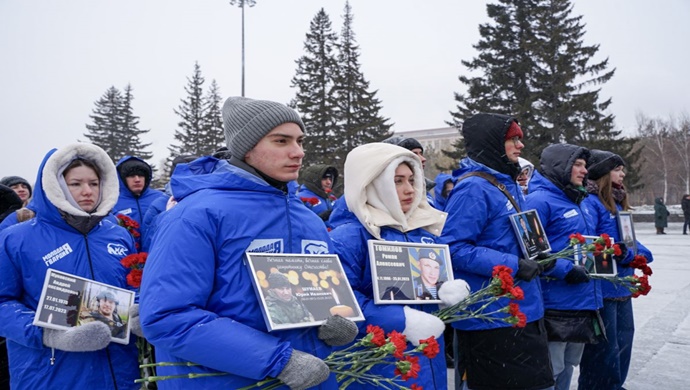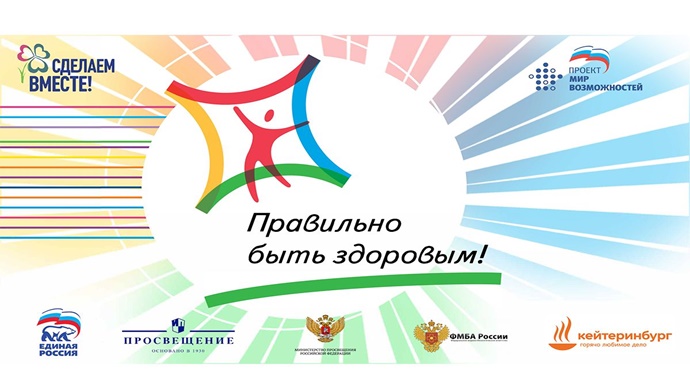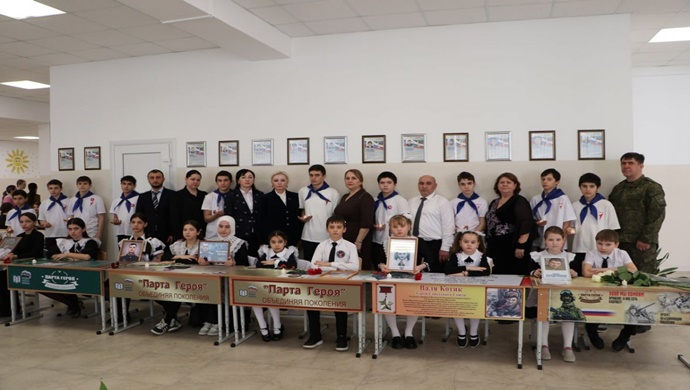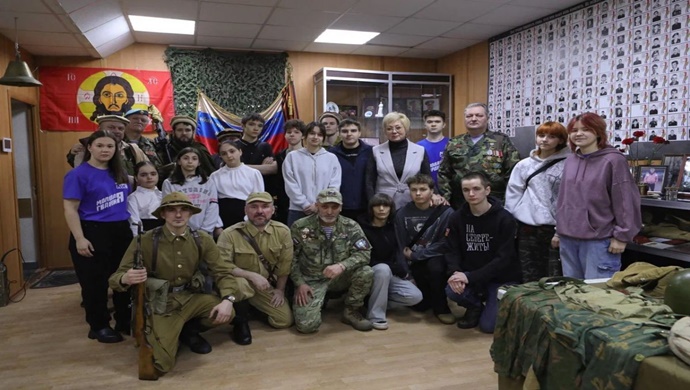The American University of Europe RISE concept
by Dr. Raymond Akiki
AUE –President
The American University of Europe, and in concordance with its promise of Empowering People towards new frontiers while safeguarding the planet; introduces and from Turkey a new model in tertiary education: The RISE concept.
The UNESCO for nearly a decade was disseminating views and investing in knowledge about the many ways technology can facilitate universal access to education, bridge learning divides, support the development of teachers, enhance the quality and relevance of learning, strengthen inclusion, and improve education administration and governance…
Alas the Covid 19 remote education, showed how much the theories and investments already done in ICT in Education were far from realities… And how much that SDG#4 needed hard realistic work and perspective. Whether in low-resourced primary schools in the countries of the South or privileged universities in high-income countries, or vocational centers – the problem was felt, of course with different degrees and impact intensity. Issues like limited access to technology or adequate learning material at home and low parent readiness and capacity of support showed and resulted in insufficient alternative-learning opportunities during the COVID-19 lockdowns. That event showed how many the barriers were compounding the already existing difficulties of education, and how much the schools and universities were under-resourced even if richly financed and effortlessly endowed.
In tertiary education, Covid 19 has also tested the adequacy, fitness, flexibility, viability, and sustainability of university operating models, practices, and systems. If they plan not only to survive after the pandemic, universities must reassess and adapt their strategies. Here SDG# 4 is definitely at stake and under severe threat. It is imperative and central to seize the moment to be innovative, proactive, and adapt to a post-COVID-19 world; higher education must rethink its future and take steps to do so…
Education catch-up for our learners in 2022 is an urgent priority.
We need to reiterate that the year 2022, is definitely on the Economic and Educational levels the year of global hangover…
The UNESCO those days is warning of a possible “global learning crisis at all levels of the education system”, which embraces of course universities. This learning crisis comprises both a reduction in the amount of content students are exposed to and the competencies they develop and also affects emotional and mental health depending on their ability to deal with the challenges posed by the pandemic. Resilience in teachers, students, and the education system is going to be an important factor in the measures dealing with the effects of the pandemic. Also, and still, according to UNESCO, this crisis “will have long-lasting consequences for education systems in terms of access, quality, equity, and management, which are likely to persist beyond the pandemic.” These consequences will also be stronger for students. Save the Children divides the pedagogical effects of the confinement into four main groups: loss of competencies and knowledge; difficulty individualizing learning; loss of interest in learning; and lack of direct assistance from teachers. Other education possible related effects could be the increase in the number of hours dedicated to studying and homework, increased worrying about evaluation methods, creating adverse impacts like saturation and uncertainty. Emotional detachment from school or university, teachers, subjects, and classmates, while on the other, post-traumatic stress, confusion, anger, anxiety, boredom, frustration, and loneliness…
Another major issue Higher education is facing is Innovation. Innovation is not only an obligation for tertiary education in the 21st century; It is an obligation and a responsibility. Additionally, it is also pertinent to all stakeholders to understand that their sustainability depends on the ability to persistently and repetitively create and innovate. Novel products and services ensure not only business competitiveness but also quality and standards. Their commitment to innovation will result in sustainable idea-generating initiatives. Nevertheless, developing creativity and innovation is not a simple task. Creativity and innovation skills may be affected and reduced by various attributes which include the individual’s personality, environment, situation, motivation, cognitive development. Consider the great damage the Covid19 inflicted on those attributes. When it comes to isolation and confinement impacts the personalities of the learners namely their motivation, drive, and confidence levels. Not to mention the social stigma and its negative relation to teams and communication. This is to be added to the teachers’ awareness of the necessity to stimulate and reward out-of-the-box thinking. Learners are more worried about the possibility of failure than excited to innovate. Also, Wallas’s four stages: preparation, incubation, illumination, and verification are a teacher-learner and team intensive action.
As it comes to sustainability, The Sustainable Development Goals Report 2021 ( https://unstats.un.org/sdgs/report/2021/) which tracks global efforts to achieve the SDGs, COVID-19 has caused a major disruption to people’s lives and livelihoods. While progress to achieve the SDGs had been slow even before an additional 119-124 million people were pushed back into poverty in 2020. An equivalent of 255 million full-time jobs was lost, and the number of people suffering from hunger, which was already climbing before the pandemic, may have increased by 83-132 million. About 90% of countries are still reporting one or more disruptions to essential health services, beyond the pandemic. Violence against women and girls has intensified; child marriage is expected to increase, and women have suffered a disproportionate share of job losses. 759 million people remained without electricity. The world fell short on 2020 targets to halt biodiversity loss and 10 million hectares of forest being lost each year between 2015-2020. The pandemic has exposed the intense inequalities within and among countries. As of 17 June 2021, around 68 vaccines were administered for every 100 people in Europe and Northern America compared with fewer than 2 in sub-Saharan Africa. The collapse of international tourism disproportionally affects Small Island Developing States. Concentrations of major greenhouse gases continued to increase, while the global average temperature was about 1.2°C above pre-industrial levels, dangerously close to the 1.5°C limits established in the Paris Agreement. Global flows of foreign direct investment fell by 40% in 2020 compared to 2019. The pandemic has brought immense financial challenges, especially for developing countries – with a significant rise in debt distress. The impact of the COVID-19 pandemic on schooling is a ‘generational catastrophe.’ An additional 101 million children and youth fell below the minimum reading proficiency level, wiping out the education gains achieved over the last two decades.

As for Evolution, historically, Higher education was transformed in the 19th and 20th centuries to meet the needs of an emerging national, analog, industrial economy. Conversely, colleges and universities have relied on traditional economic models to sustain them. For the majority of private institutions, that meant enrolling a stable number of tuition-paying students. In the case of public institutions, it meant receiving consistent state appropriations, in addition to tuition revenue. The pace of change in the economy, as well as the global COVID-19 pandemic, has impacted the reliability of traditional models, putting pressure on institutions to readjust their strategies… Today, higher education is again being transformed – this time to serve the needs of a global, digital, knowledge economy. People fundamentally disagree about what form that transformation will take. Higher education has no choice but to adapt to the new changing conditions, as it has historically, maintaining its current mission and structure. The new and emerging environment is not that easy to cope with, and its magnitude will disrupt higher education as we know it. The traditional models will not become obsolete as they are now even if Educational leaders fail or refuse to notice and admit that harsh reality, and driving thus many private colleges and universities to bankruptcy. While the public ones, secure financially, will go on in a total myopic and out-of-sync stagnating traditional strategy to create a generation of an unemployable or under-employable labor force.
Global tertiary education has to rebuild and reinvent itself not only in response to COVID-19 but in response to all the failures the pandemic revealed and exposed. The steep gap between the educators’ cheap talk, events on sustainability, ICT in Education, 21st-century skills… And the harsh reality. Higher education in the first quarter of the 21st century needs a thorough rethinking and reinventing. Even Dewey is taught in curricula the traditional way !. Beyond funny, it is painful. Private education is suffering from increasing financial pressure and increased push towards minimalism, whereas public sector education is just a secure job. Quality is definitely at stake. Essentialization is preached and praised !! Today, there is an opportunity to accelerate the thinking on how to best support quality education for all. In the months and years ahead, coalitions of evidence-to-policy organizations, implementation partners, researchers, donors, and governments should build on their experiences to develop education as it should be and a better way towards proper SDG implementation. It is not a luxury but an imperative to improve pedagogy, support teachers, motivate students, improve school governance, and address many other aspects of the learning experience. Perhaps one positive outcome of the pandemic is that it will push us to overcome the many remaining global educational challenges sooner than any of us expect.
The American University of Europe, with all its potential and means, exemplifies a commitment to those worldwide challenges by investing in developing globally all the local communities it serves…
Today we introduce the RISE paradigm to complement our commitment to liberal education, rather than essentialism. Using and delving into nurturing and constantly evolving with and within liberal education, is deriving from our belief in the power of the free mind. Only a free mind can discern what is true from what is false. Liberating students from roots for wings…
Our Liberal education uses activities properly designed to breed intellectual creativity, autonomy, and resilience; critical thinking. We associate the intellectual breadth with specialized knowledge; the comprehension with the tolerance of diverse ideas and experiences; informed participation in community life; and communication skills. We aim to use education to empower individuals, liberate their minds from liens, and cultivate social responsibility. Beyond that we provide more wellbeing resources, career support, and flexibility in our curricular and extra-curricular activities, everything to drive trust and support to our learners. Today, Information is plenty, but wisdom is scarce… AUE’s response is to enable our learners not only to unencumbered access to information but to do that for the service of sustainability and liberal education. Our issue encompasses acquiring information, to the way that information is used and applied which will determine the quality of academic performance and real-life experience. The Diversity of our learners and academic corps is here to add value and perspective rather than a necessity of mere inclusiveness. We implemented internationalization at home when and while others are today, alas convening and explaining its value.
As for sustainability, our role will continue to be next to raising awareness among our learners, stakeholders, and the communities we serve. We will also extend that role to put at the service of research and development and informed policymaking valid and reliable data. We are continuously striving to ensure sufficient funding for data collection, both through the mobilization of every resource.
Evolution into a university is not simple however Evolution within a university is more intricate: departments within our university grew and are expected to constantly grow to become their own schools with their own Mission, Objectives, and ultimate destiny.
Along with the constant development of academics and teaching styles and skills, learning tools and teaching techniques have also changed significantly with the digital revolution. There’s a need to incorporate technology, mobile devices, and independent learning while preserving, for the moment, traditional models and setups. Some examples to illustrate might be:
• Hands-on learning: from simple field trips, apprenticeships, and design to User Experience (UX) Design, where informed insights from research are applied to propose and create real-world solutions.
• Flipped classrooms: from providing learners with study materials beforehand and encouragement to discuss them with their peers in and out of classrooms to leading the direction of the course, and increased engagement to learn the material at their pace.
• Microlearning: To foster the highest effectiveness through efficiency academicians are delivering lessons in “bite-sized chunks” instead of lengthy lectures. Topics are broken down into concise lessons with opportunities for hands-on learning and activities to keep students engaged.
• Diversified learning: from simple nurturing visual learners, with the others who do better in reading or listening to lectures to offering the proper avenues that allow students to understand concepts such as podcasts, videos, and other digital resources online in place of traditional learning content.
The pandemic has reshaped expectations of higher education— it has also created an opportunity for institutions to accelerate their digital transformation. The challenge to educational institutions is not only finding new technology and using it but also reimagining its education, thereby helping learners and academic staff who are seeking guidance for digital literacy.
The American University of Europe has firmly put in place the physical, external/industrial, and advisory infrastructure that support our commitment to a total learning experience. Our donors and supporters, namely Titanium Capital, contributions to that commmitment is to be mentioned and praised…
Proactively we will rely on our multidisciplinary and theme-based approach in research to find innovative solutions to tackle global challenges. Committed to leading education, AUE provides a holistic and total-learning experience to learners and nurtures them with 21st-century skills to inspire and innovate.







